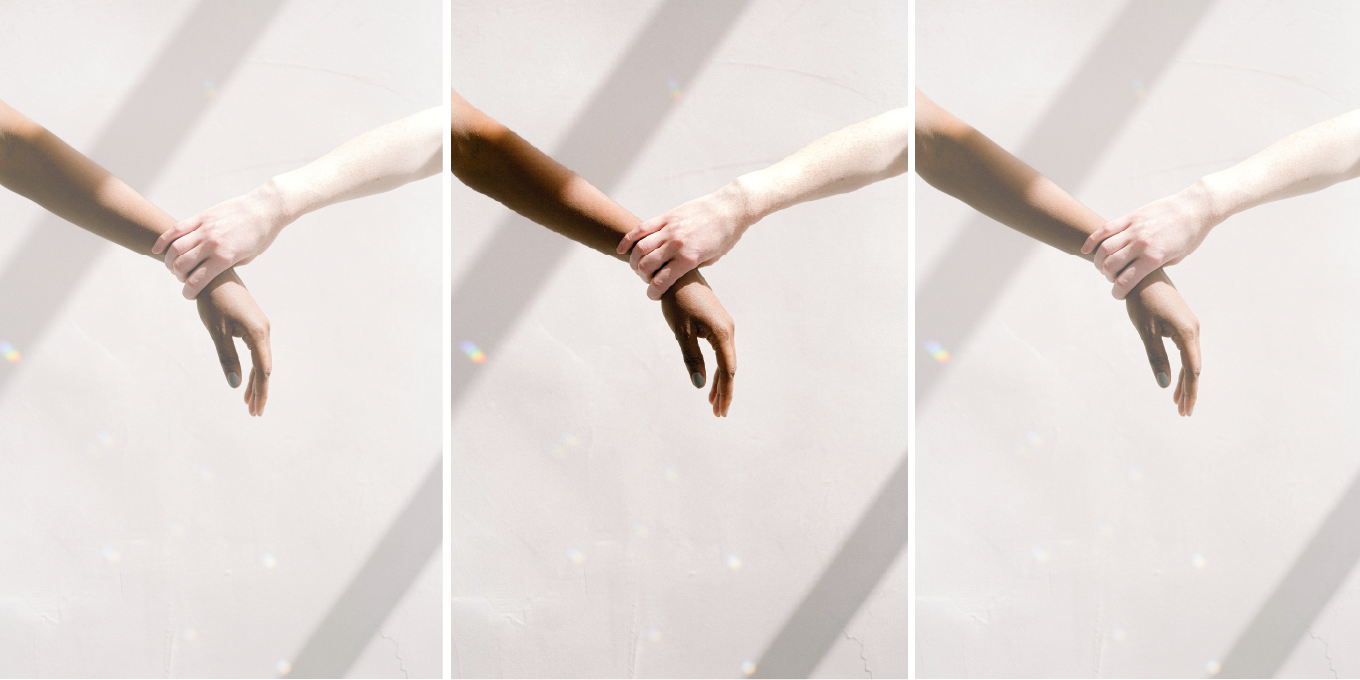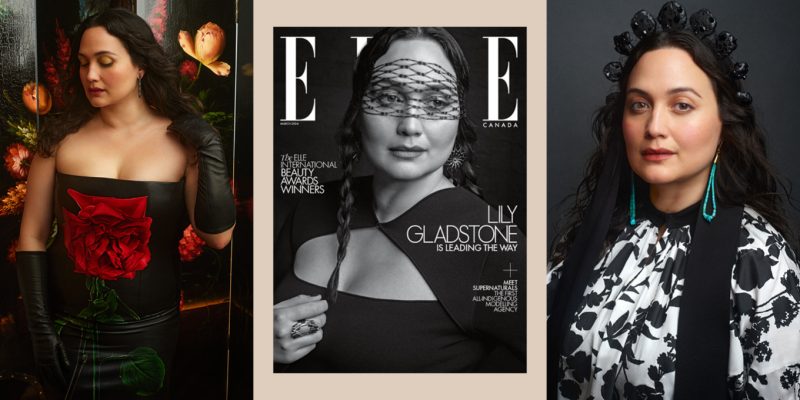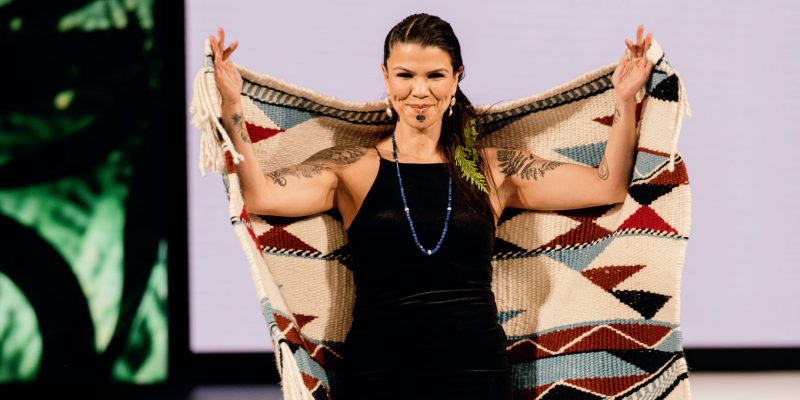Society
Wake-Up Call: How These Women Have Escaped Cults
From religious cults to pyramid schemes to toxic workplaces, high-control groups aren't easy to escape. Many women have gotten out and are helping others do the same.
by : Eve Thomas- Jun 9th, 2022

PHOTOGRAPHY, ANNA SHVETS/PEXELS
“You can’t bully someone out of a cult,” says Sarah Edmondson. “If they’re in deep, they’ve been taught exactly what to say to you.” She knows what she’s talking about. Edmondson’s harrowing story has been covered at length by the media, in a New York Times feature, the CBC podcast Escaping NXIVM and HBO’s The Vow, the wildly popular 2020 docuseries that helped expose NXIVM—a self improvement course disguising a multi-level marketing (MLM) scheme hiding a sex-trafficking cult—to the world.
But for Edmondson, reclaiming control of her own narrative by writing her memoir, Scarred, was a vital part of the healing process. The book’s cover is emblazoned with a photo of her abdomen bearing the brand of NXIVM leader Keith Raniere’s initials, something she calls “a physical manifestation of emotional abuse.” The image is stark and brutal, but the story inside is a subtler look at universal human themes—idealism, seeking community, wanting to make a difference—and what happens when they’re exploited through coercive control by malignant narcissists.
Now, from their Vancouver home, she and her husband, Anthony “Nippy” Ames, are building a road map for other survivors through their podcast, A Little Bit Culty. As the title suggests, it’s less about infamous groups like Heaven’s Gate or the Manson Family and more about the culty, the cultish, the cultic and the cultlike. They explore the power imbalances found in myriad modern groups, including pyramid schemes, the self-help movement, Transcendental Meditation and the alt-right.
Culty is just one part of a new media movement that centre survivors’ voices and educates audience members who have exited high-control groups, are wondering whether they’re in one now or are worried about loved ones who are in one. It’s also essential listening for anyone who thinks they’re immune to indoctrination, especially in this time of unprecedented isolation, when self-anointed gurus can spread their message far and wide through social media.
The goal isn’t to gawk at or expose these groups but to reveal the common threads and red flags between them, because, while this may be a golden age for cult content—from the documentary series Wild Wild Country to the movie Midsommar, not to mention hundreds of true-crime podcasts—it all varies dramatically in tone and scope. “So much of it is like ‘Look at this bad cult leader; he’s so gross!’ and people can’t relate,” says Edmondson. “Then they watch the first episode of The Vow and are like, ‘Yeah, okay, I would totally sign up for that.’” And because most Culty guests are both experts and survivors themselves, they end up comparing notes with the hosts, openly cringing, crying and even laughing at how obvious it all seems now with the luxury of hindsight—and the freedom to finally question everything.
“When people asked ‘Is this an MLM?’ we were trained to say ‘No, because MLMs are inherently unethical,’” Edmondson tells guest Roberta Blevins in one Culty episode. Blevins replies with her own canned response: “It can’t be a pyramid scheme, because pyramid schemes are illegal and I would never do anything illegal!” (Though many activists use the terms interchangeably, technically, MLMs are legal in Canada, while pyramid schemes—which focus on recruiting vendors over making sales—are not.)
Like Edmondson, Blevins was fi rst introduced to audiences in someone else’s docuseries: LuLaRich, about the rise and fall of Mormon-run billion-dollar leggings MLM LuLaRoe, which promised part-time work for full-time pay to throngs of stay-at-home moms. Blevins grabbed headlines for her wry on-camera exclamation “Oh, my God, I’m in a cult.”
The stakes and lures of NXIVM and LuLaRoe may seem drastically different—changing the world for the former, selling stretch pants for the latter—but if we delve a little deeper, there are countless parallels: love-bombing, an us-versus-them mentality, faux women’s empowerment, emphasizing personal responsibility for any failures while attributing all good things to the leaders. Underlying it all is convoluted insider jargon, which is effective because, as linguist and Cultish author Amanda Montell puts it, “language does not simply describe or reflect who we are; it creates who we are.”
Another similarity is the high cost of leaving. After someone “wakes up” from a high-control group, getting out can mean losing their entire community, facing legal action and harassment (or worse) and confronting deep feelings of shame and failure. Speaking up at all is rare, and speaking out publicly means risking yet more backlash. “Half the people were telling me I was stupid because I joined, and the other half called me stupid because I left, [saying] that this is the business of the future,” says Blevins of her early attempts to share her story online.
This lack of victims’ voices motivated her to start her own podcast, Life After MLM, in 2021. It’s supplemented with user-friendly TikToks and pastel Instagram infographics—the same kind of content she had to churn out 24-7 for LuLaRoe, only flipped on its head. Her guests sound like old friends because whether they were selling essential oils or health shakes, they’ve all navigated the same broken business model that results in 99 percent of people losing money and worked inside a broader #girlboss culture that glorifies bootstrapping and side hustles amid the collapse of social safety nets.
Their conversations aren’t limited to how they were deceived, either. They recognize the role they played in duping others, even if they thought they were “blessing” them with an amazing business opportunity. “Everyone in it is a perpetrator and a victim,” says Blevins. “You don’t have to hate yourself for it, but [you need to] understand that that’s part of it.”
“When you're isolated and alone in these hierarchies, you're trained to doubt yourself. ”
A year in, Blevins can barely keep up with the number of people who are finally ready to speak on the record. She says the format works precisely because she has been there too. “I love the experts, but it can seem condescending for academics to tell you ‘You’re in a pyramid scheme’ versus me, who’s like, ‘Yeah, I got sucked in too.’” Though she still gets daily messages from detractors, Blevins says most come from those inside MLMs. Sometimes, they hate-watch her feeds for so long that they eventually come around (an advantage to that accessible content). It’s one of the reasons she doesn’t block her bullies. She wants them to be able to get in touch when they finally decide to seek help. “Not if—when,” she emphasizes.
Help hasn’t always been so easy to find. In 2009, in Sedona, Ariz., police arrived at a Spiritual Warrior retreat to find a grim scene: an oversized tent approximating and appropriating an Indigenous sweat lodge surrounded by ailing people with shaved heads. Of the over 50 participants, three lost their lives. But the police assumed it was an accident—an expensive consensual ritual gone horribly wrong—rather than the result of strategic coercion by self-help guru James Arthur Ray, who first rose to fame in the Oprah-endorsed “law of attraction” documentary The Secret.
“At the time, people were not ready to hear this kind of story,” says Laura Tucker, one of the survivors, from her Toronto home. “What we experienced was so beyond logic that they didn’t know what they were looking at.” Five years ago, Tucker started her own podcast, Free Your Inner Guru, as a complement to the life-coaching business she had at the time. The show has since shifted into taking a look at the self-help industry’s potential for cultish dynamics, thanks in part to Culty (Tucker has been a guest on Edmondson and Ames’ show and vice versa) as well as her participation in the 2020 podcast series Guru: The Dark Side of Enlightenment. Last year, Tucker also watched the Spiritual Warrior tragedy get twisted into fiction in the series Nine Perfect Strangers, and she knew she had to confront the “cult” label head-on. She says she spent a long time resisting it because her experience just didn’t fit the mould. There was no compound and no strict regimen, and she found much of her early involvement to be beneficial. Now, because of those who have come before, she can explore the term with curiosity and nuance.
The #metoo movement was another major influence on Tucker’s new-found perspective (as well as #igotout, a similar hashtag created for cult survivors to share their stories). In fact, the New York Times feature that initially exposed NXIVM was put on the back burner until the Harvey Weinstein story broke. Then, suddenly, complex conversations around consent were making headlines. Yet questions like “How could you fall for that?” and “Why didn’t you leave?” are still commonly asked of survivors of cultic groups, and assumptions that only uneducated or foolish people fall prey to them are rife.
“Nobody looks to join a cult; they’re trying to get involved with something positive,” says Tucker, who would like to see more intervention at every level: regulation in the self-help industry, therapist training on high-control groups and school curricula on undue influence. She’s also working on a memoir to add to the growing canon. “What it’s going to take to get people out is giving them relatable stories,” she says. “No one person is going to do it, no one podcast; it’s got to be an army of voices.”
Getting out of a toxic environment is one thing; warning others is another. Lioness, a new media company launched in late 2019 by Ariella Steinhorn and Amber Scorah, is helping guide whistle-blowers through the process of going public. The site lets people submit their stories of workplace harassment, fraud and more, connecting them with pro-bono lawyers, introducing them to journalists or helping them write their stories themselves. “We saw a lot of people sharing these stories on [digital-publishing platform] Medium, but the [stories] weren’t fact-checked and the [people] were too close to the narrative to tell it in a way that would get media attention,” says Scorah. So far, Lioness has facilitated pieces on allegations involving big names like Glossier, Tony Robbins, Jeff Bezos’s Blue Origin and the Chopra Center.
Before Lioness, Steinhorn worked in media relations and launched a start-up that connected workers in toxic situations to employment attorneys. Scorah, originally from Vancouver, grew up as a Jehovah’s Witness before, in her words, “deprogramming” and writing a book about it. “I wanted a public testimony people on the inside could access, an artifact that would give them a pathway out,” she says.
Both of them know that the first step in helping people is often a matter of simply validating their concerns. “The vast majority of the time, when someone brings a story to us, they say something like, ‘I don’t even know if this is that bad,’” says Scorah. “And we’re usually like, ‘Uh, yes it is.’ When you’re isolated and alone in these hierarchies, you’re trained to doubt yourself.”
Therein lies the power of these podcasts, social-media posts and TV shows, which people can consume privately and at their own pace. “It’s less threatening that way,” says Scorah, who wonders how much sooner she would have gotten out if she’d had access to this kind of content. She knows first-hand that a hard sell wouldn’t have worked: “If I went to people on the inside and said ‘You’re in a cult; you’ve got to get out,’ well, that’s what they’ve been told Satan will do.”
Edmondson recalls how many people contacted her after watching The Vow, suddenly awake to their reality. “They thought it was just the next Tiger King,” she says. “Then they recognized themselves.” The choice for a survivor to speak up—in a documentary, an interview or a book—or come to terms with their experience privately is intensely personal. But whatever they decide to do, they’ve got a growing network of people waiting for them. There are no exalted leaders and no lofty promises, just support and stories from people who have been there—something like the community they were seeking all along.
Newsletter
Join our mailing list for the latest and biggest in fashion trends, beauty, culture and celebrity.
Read Next

Fashion
Are Fashion Brands Getting Greener?
While the fashion industry is making a lot of noise about being more sustainable, a closer look shows that its earth-friendly commitments are often more illusion than reality.
by : Marouchka Franjulien- Apr 19th, 2024

Beauty
What Beauty Packaging Is Actually Sustainable?
We sought out leaders in the field to help us get to the bottom of the blue bin once and for all.
by : Victoria Christie- Apr 19th, 2024

Beauty
Tested and Approved: Your New Hydrating Skincare BFF
This new product has all of your skin’s thirst-quenching needs covered.
by : ELLE Canada- Apr 17th, 2024




